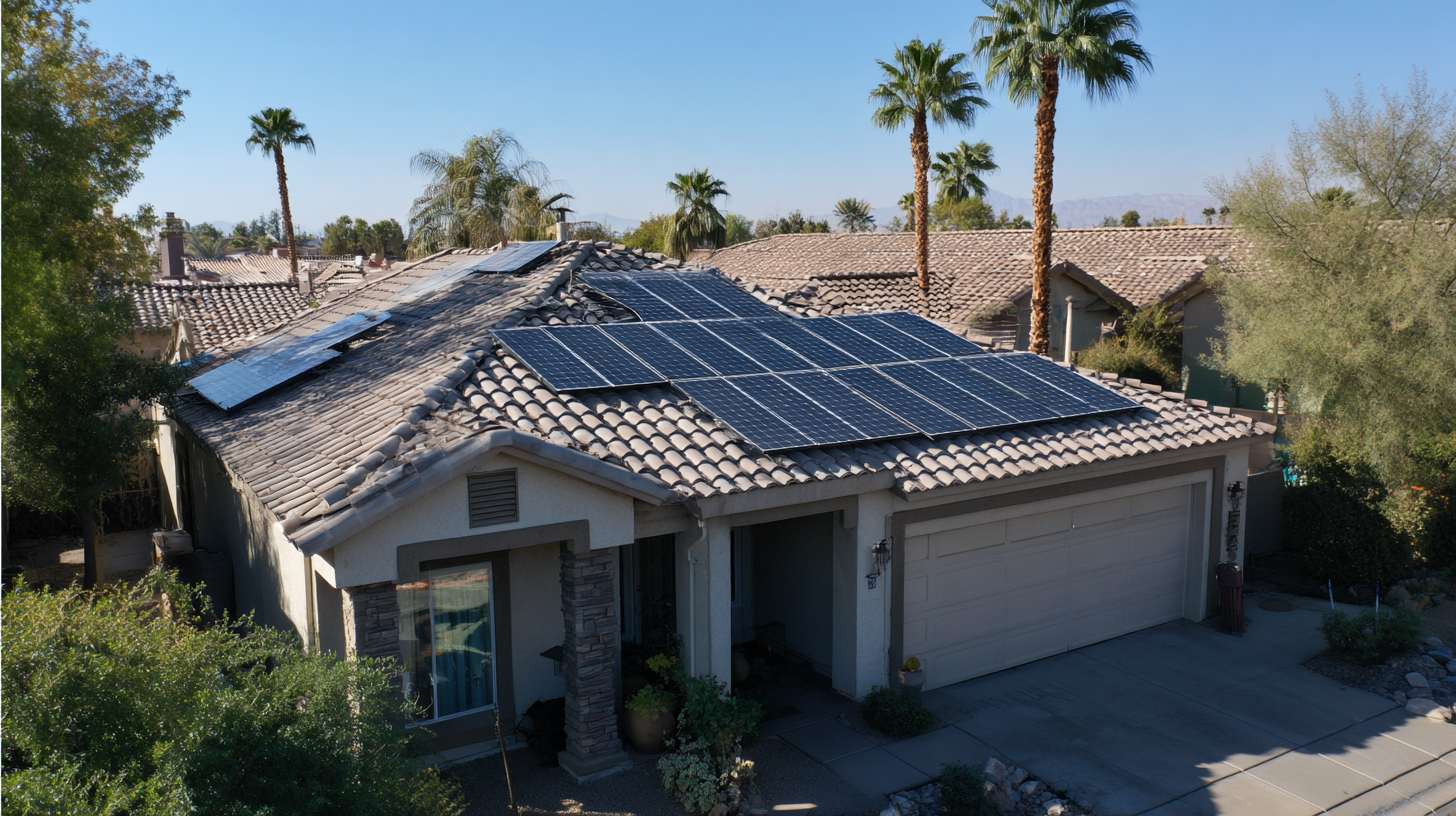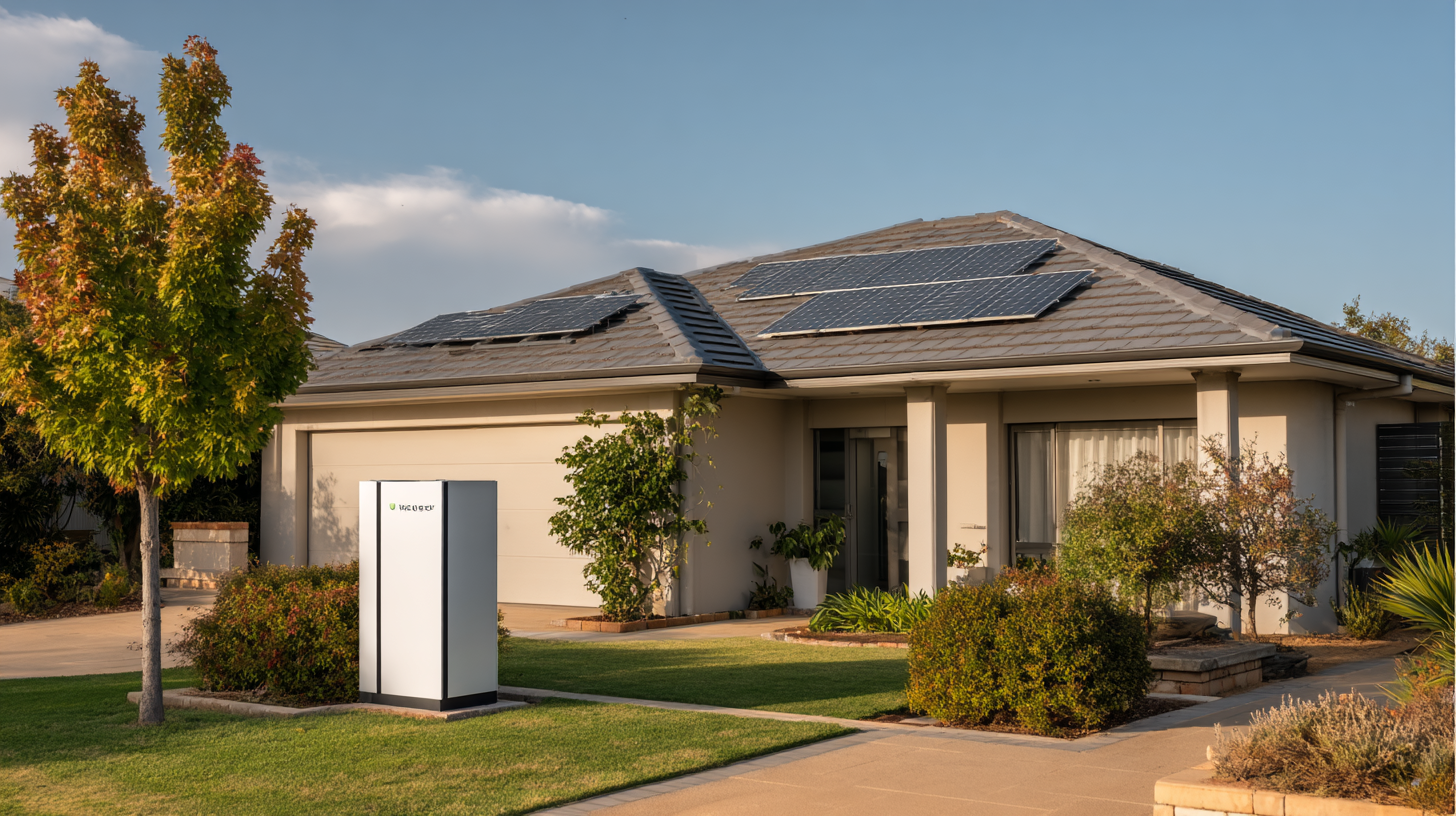Why Solar Battery Storage is Essential for Homeowners Looking to Save Energy Costs
As homeowners increasingly seek ways to reduce their energy costs and enhance their sustainability efforts, solar battery storage has emerged as a crucial component in the quest for energy independence. This innovative technology allows residents to harness the power of the sun and store it for use during peak times or outages, ultimately leading to significant savings on their electricity bills. In this guide, we will explore the vital role that solar battery storage plays in modern energy management for homeowners, highlighting not only its financial advantages but also its environmental benefits.
With rising energy prices and the growing demand for renewable energy sources, incorporating solar battery storage into home energy systems has never been more relevant. Homeowners can optimize their solar energy use by storing excess energy generated during the day for nighttime use or during periods of high demand. This practice not only lowers reliance on the grid but also provides a buffer against fluctuating energy prices. In the following sections, we will outline practical steps homeowners can take to implement solar battery storage effectively, ensuring they maximize their savings while contributing to a more sustainable future.

The Rising Cost of Electricity: A Financial Analysis for Homeowners
As electricity prices continue to rise, homeowners face increasing pressure on their monthly budgets. A recent analysis shows that many U.S. households are at risk of significant financial strain due to escalating utility bills, especially with the growing demand for electricity driven by advancements in technologies like artificial intelligence. As AI consumption soars, homeowners can expect to see a corresponding increase in their power bills, highlighting the need for sustainable energy solutions. According to industry reports, the average homeowner could save around $57,000 over 25 years by investing in solar energy, making solar panels a viable option to mitigate these rising costs.

Moreover, coupling solar panels with battery storage not only enhances energy independence but also provides a safety net during power outages. A significant portion of U.S. households can reduce their electricity expenses and maintain a stable energy supply, even during disruptions. Installing rooftop solar panels along with battery storage systems empowers homeowners to manage their energy efficiently, optimizing savings while contributing to a more resilient electrical grid. With the financial landscape shifting, now is the time for homeowners to consider solar energy as a strategic investment in their financial future.
Understanding Solar Battery Storage: Technology and Functionality Explained
Solar battery storage systems are integral components of modern renewable energy setups, particularly for homeowners seeking to optimize their energy consumption and reduce costs. At its core, solar battery storage technology involves lithium-ion or other advanced batteries that store excess energy generated by solar panels during sunlight hours. This stored energy can then be used during peak demand times, when electricity rates are typically higher, enabling homeowners to rely less on the grid and to take full advantage of their solar energy investments.
The functionality of solar battery storage extends beyond mere energy storage; it also plays a vital role in energy management. By storing energy, these systems allow homeowners to create a buffer against power outages and fluctuations in energy costs. With the integration of smart technology, users can monitor their energy usage in real-time, making informed decisions to optimize their consumption patterns. This not only enhances energy efficiency but also contributes to a more sustainable lifestyle by maximizing the use of clean, renewable energy.
Annual Energy Savings with Solar Battery Storage
This chart illustrates the potential annual savings that homeowners can achieve by utilizing solar battery storage over the years. As energy efficiency improves and costs of solar technology decrease, homeowners can expect to see increased savings on their energy bills.
Maximizing Energy Independence: The Role of Solar Batteries in Home Systems
As energy prices continue to rise, homeowners are increasingly seeking ways to maximize their energy independence. Solar batteries play a crucial role in this quest for autonomy by storing excess energy generated during the day for use during the night or during peak demand hours. This not only reduces reliance on the grid but also allows homeowners to avoid high energy costs associated with peak usage times. By integrating solar batteries with solar panel systems, homeowners can achieve significant savings on their electricity bills while contributing to a more sustainable energy model.

Tips for Maximizing Your Solar Battery Investment:
1. Ensure your solar battery system is sized appropriately for your household's energy needs. An under-sized system may not store enough energy for use during peak times, while an over-sized system could result in unnecessary costs.
2. Consider a system with smart management technology that optimizes charging and discharging cycles based on your usage patterns and utility rates.
3. Regularly monitor your energy consumption and production data, as this can help identify opportunities for increased efficiency and further savings.
Embracing solar battery technology not only enhances energy independence but also empowers homeowners to take control of their energy future while promoting sustainability.
The Return on Investment: Financial Benefits of Solar Battery Storage Over Time
Solar battery storage systems are becoming increasingly crucial for homeowners seeking to maximize their energy savings. According to the U.S. Department of Energy, the average home could save up to $500 annually on energy costs with the integration of solar battery systems. This substantial saving arises from the ability to store excess energy generated during the day for use during peak demand hours when electricity prices are typically higher, thus making energy consumption more efficient and cost-effective.
Furthermore, the financial benefits of solar battery storage extend beyond just immediate savings. A report by Wood Mackenzie estimates that the market for residential energy storage systems is set to grow at a compound annual growth rate (CAGR) of over 20%, indicating robust consumer demand and highlighting the long-term investment potential for homeowners. Over a typical 25-year lifespan, the return on investment (ROI) for solar battery systems can exceed 300%, especially when factoring in incentives such as tax credits and net metering programs. These compelling financial metrics underscore the importance of solar battery storage as a savvy investment for environmentally conscious and cost-savvy homeowners alike.
Why Solar Battery Storage is Essential for Homeowners Looking to Save Energy Costs
| Year | Initial Investment ($) | Annual Savings ($) | Cumulative Savings ($) | Return on Investment (%) |
|---|---|---|---|---|
| 1 | 10,000 | 1,200 | 1,200 | 12% |
| 2 | 10,000 | 1,200 | 2,400 | 24% |
| 3 | 10,000 | 1,200 | 3,600 | 36% |
| 4 | 10,000 | 1,200 | 4,800 | 48% |
| 5 | 10,000 | 1,200 | 6,000 | 60% |
Government Incentives and Rebates: Making Solar Battery Storage More Accessible
Government incentives and rebates have become pivotal in making solar battery storage more accessible for homeowners. According to the Solar Energy Industries Association (SEIA), the average installed cost of solar batteries has decreased by approximately 70% over the past decade. This significant reduction not only lowers the upfront investment for homeowners but also aligns with various government initiatives aimed at promoting renewable energy adoption. Tax credits, grants, and rebates provided at both federal and state levels serve as compelling financial motivators, often covering a substantial portion of installation costs.
Moreover, as reported by the National Renewable Energy Laboratory (NREL), homeowners who invest in solar battery storage can expect to save up to 60% on their energy bills over time. Coupled with energy independence during peak demand times, incentives help ensure a quicker return on investment. As more states implement robust programs to subsidize battery storage installations, the pathway to sustainable energy becomes clearer, allowing homeowners to significantly cut costs while contributing to a cleaner environment.
Related Posts
-

Exploring Solar Battery Storage Innovations at the 2025 China Import and Export Fair with Industry Growth Insights
-

What You Need to Know About Solar Battery Storage Systems for Your Business
-

What is Solar Battery Storage? Unpacking Benefits, Technology, and Market Trends in 2023
-

Power Solar Innovations: Case Studies on the Surge in Renewable Energy Adoption
-

Top Power Solutions for Solar Energy in 2025: Innovative Technologies for a Sustainable Future
-

How to Optimize Your Solar System Electricity Setup: A Step-by-Step Guide for Maximum Efficiency
